Why Amazon is the game-changer Australia needs
WHEN it comes to retail, Australians have been left behind, and online giant Amazon is about to shake up everything.
WHEN you need to buy a new kitchen gadget, a designer lipstick, a branded razor, a calendar and that vital cable for your television — what’s the one easy place you can turn to?
That’s right, there isn’t one in Australia. You’re facing hours going shop-to-shop, picking up second-rate products from a local mall or ordering from various websites with delivery fees on each item and mixed rules on returns.
Amazon is the game-changer our retail landscape needs, one that transformed shopping in the UK and US years ago. Despite the hand-wringing from the retail sector that has dominated reporting on the online giant, this is mostly good news for the consumer.
You will be able to buy what you want, when you want it. It will typically be affordable. Existing brands will have to work harder to compete. It will be the arrival of Uber, or Aldi, all over again.
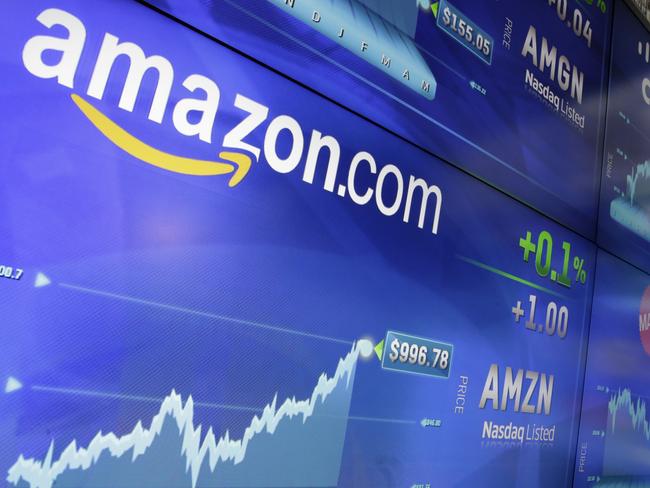
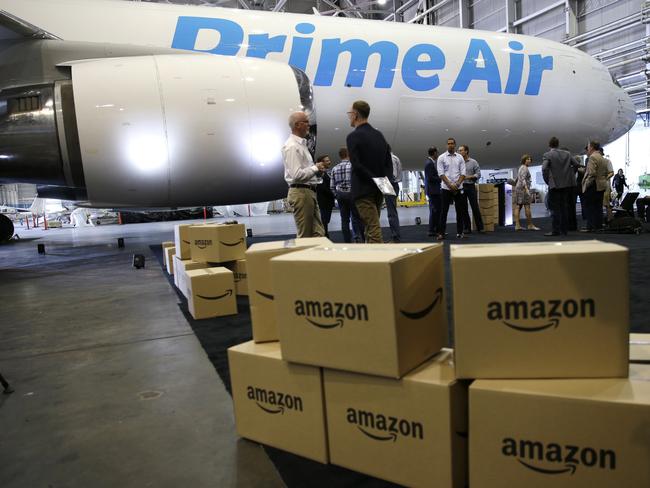
‘THE AMAZON EFFECT’
I lived in the UK more than four years ago, and buying books, travel accessories and homeware couldn’t have been easier. Every Christmas now, I log on to Amazon and select the perfect toiletries, chocolates, booze, games, DVDs, hiking gear and toys that I want for all of my relatives, adding wrapping and a message where needed. It’s the work of minutes.
In the four years I’ve been in Australia, waiting for Amazon, the company has grown enormously, and it’s in fashion that investment bank Morgan Stanley now sees the biggest threat.
Its report “The Amazon Effect in Australia” says $800 million will be wiped from the earnings of chains including JB Hi-Fi and Harvey Norman, but the single biggest impact will be on Wesfarmers. The nation’s largest retailer, which owns Target and Kmart, could lose more than $428 million in earnings by 2026.
The report said department stores would be the sector worst hit, as Amazon generates up to $12 billion in sales by 2026.
Online retailer Catch Group this week announced it is having a makeover to ensure it becomes number two in Australia after Amazon, rebranding Catch of the Day as Catch.com.au and turning it into a marketplace.
Amazon Fresh will take on the grocery sector, and it is aggressively building its Amazon Prime video membership service, making inroads into streaming and refusing to stock Apple products in favour of its Fire TV sticks. Amazon entered the Artificial Intelligence field in 2014 with its Alexa speaker. This week it emerged that its shares (and those of Google) have just reached $US1000, putting them in an elite club of mega-companies.
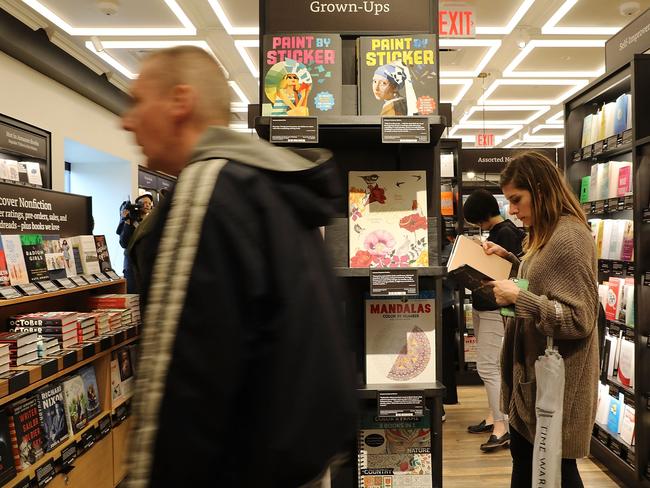
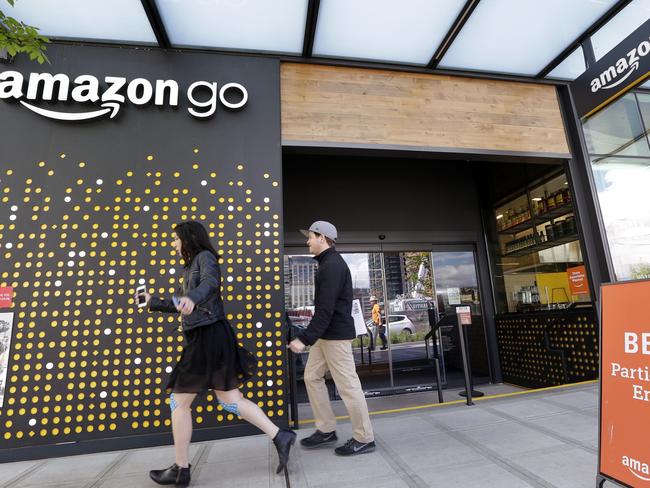
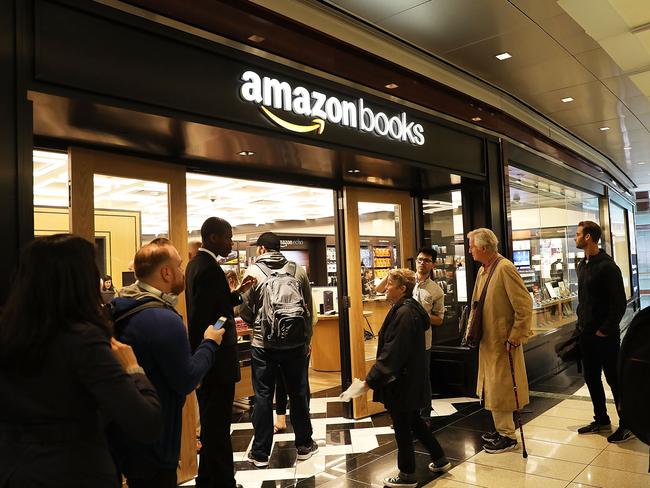
AMAZON ‘WILL RUN PETROL STATIONS’
Australians haven’t migrated to online shopping in the landslide once predicted. Figures released by the National Australia Bank last week showed the Online Retail Sales Index — a measure of spending on retail goods — fell by 0.8 per cent in April. But even if you prefer to visit a store and try clothes on, it’s being able to get those small essentials without the painful search that will hook you in.
And Amazon is moving offline, too. In December, it opened a prototype Amazon Go grocery store at its headquarters in Seattle, Washington, which uses a tracking system of sensors, algorithms, and cameras instead of cashiers or checkout lines. The eCommerce giant opened its first physical bookstore in New York last month — its seventh in the US. Amazon Books, like the Go store, does not accept cash, with Prime members using the app on their smartphone to pay and non-members using a credit or debit card.
Maxim Group today predicted a future in which Amazon will run everything from petrol stations to credit lines, Dow Jones reports.
“Consumers will be able to save money at the Amazon gas station because they belong to Amazon Prime, much like Costco members today,” said Maxim’s Tom Forte. “They will also be able to pick up and return their merchandise ordered online at the Amazon gas station.”
They’ll book their travel on Amazon, and have the firm send their suntan lotion ahead to the resort so it’s there when they arrive, he added.
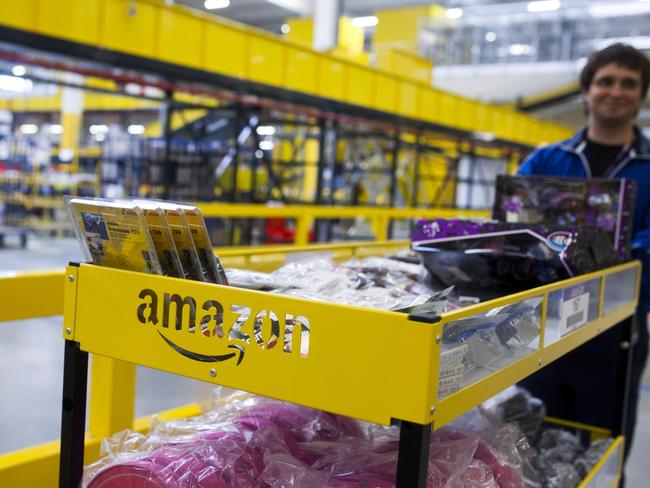
THE PROBLEM WITH THE GIANT
But just as with Uber and co, there are serious questions over Amazon’s omnipotence. Critics say the retailer has a monopoly and is destroying small businesses — book stores, boutiques, grocery stores. There are also questions over how it pays tax.
There have been regular accusations that the company mistreats workers, with reports in December of “intolerable conditions” at a Scottish warehouse, with badly paid staff forced to sleep outside in tents to save on commuting costs.
A Sunday Times investigation found temporary workers at the warehouse were being penalised for taking sick leave and put under immense pressure to hit targets, and that water dispensers were often empty despite the intense physical nature of the job. Unions said workers were falling ill from overwork.
In the US, where Walmart is buying up smaller online retailers as it battles to compete with Amazon, there have been dozens of stories about inhumane conditions at its warehouses. But workers who spoke to Mental Floss in 2015 said conditions were relatively typical for warehouse work. In 2012, after an expose on the searingly hot summertime conditions, Amazon announced plans to spend $52 million to install airconditioning.
The company is now recruiting for hundreds of jobs in Australia as it prepares for its highly anticipated debut. It has broadly positive reviews on job sites Indeed and Seek, although there were complaints about difficult management, tough targets and short lunch breaks.
Amazon is a massive tech corporation and — mirroring Facebook, Apple and Google — there are justified concerns over its practices and treatment of employees as it grows.
However, it is time Australia caught up with the rest of the Western world and actually knew what those were.



